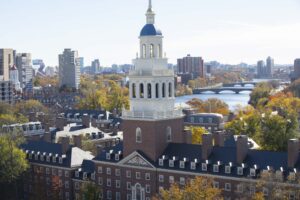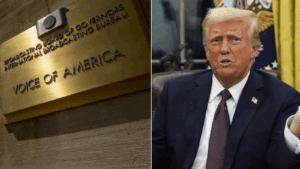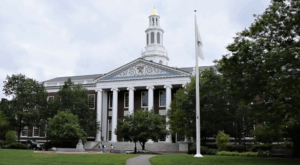In a significant escalation in the relationship between the U.S. government and elite higher education institutions, the Trump administration unveiled on April 14 a freeze on over $2.2 billion in federal grants and $60 million in contracts to Harvard University. This aggressive stance follows the university's refusal to comply with a variety of federal demands, which sought the dismantling of Diversity, Equity, and Inclusion (DEI) programs, a shift to merit-based admissions, increased cooperation with immigration authorities, and rigorous measures to combat antisemitism on campus.
Trump Administration Freezes Federal Funding for Harvard University Over Policy Disputes

Trump Administration Freezes Federal Funding for Harvard University Over Policy Disputes
Federal grants and contracts worth over $2.2 billion are on hold as Harvard University defies the government's demands for policy reforms.
In response, Harvard President Alan Garber vehemently defended the institution's autonomy, insisting that no government entity should dictate the educational policies of a private university. In a letter addressed to the Harvard community, Garber characterized the administration's move as a direct threat to academic freedom, emphasizing the importance of safeguarding their constitutional rights.
The funding freeze appears to be part of a broader initiative by the Trump administration aimed at enforcing stricter accountability in elite universities. Other institutions such as Columbia University are also reportedly under scrutiny and may face similar financial repercussions for not adhering to the government's expectations.
This development has ignited legal discussions, with numerous critics claiming the administration's actions could infringe upon First Amendment rights. On the flip side, proponents argue that federal funding should be contingent on adherence to civil rights standards and the avoidance of extremist ideologies.
As the landscape of federal engagement with higher education undergoes a seismic shift, it remains apparent that this situation is just the onset of a larger dialogue on the future of educational governance and federal influence.
The funding freeze appears to be part of a broader initiative by the Trump administration aimed at enforcing stricter accountability in elite universities. Other institutions such as Columbia University are also reportedly under scrutiny and may face similar financial repercussions for not adhering to the government's expectations.
This development has ignited legal discussions, with numerous critics claiming the administration's actions could infringe upon First Amendment rights. On the flip side, proponents argue that federal funding should be contingent on adherence to civil rights standards and the avoidance of extremist ideologies.
As the landscape of federal engagement with higher education undergoes a seismic shift, it remains apparent that this situation is just the onset of a larger dialogue on the future of educational governance and federal influence.






















